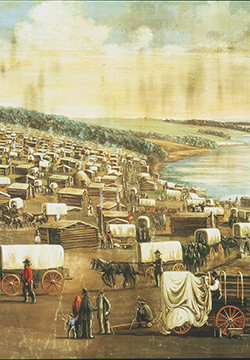April 3, 1838
Rounds qui tam v. Smith: The writ of collection (fieri facias) was returned. Sheriff Abel Kimball had levied another writ in favor of the same plaintiffs against Sidney Rigdon upon properties sold for $604.50 and another property sold for $111.75. This matter remained unsettled until after Joseph Smith's death, when the judgment was revived and satisfied.
